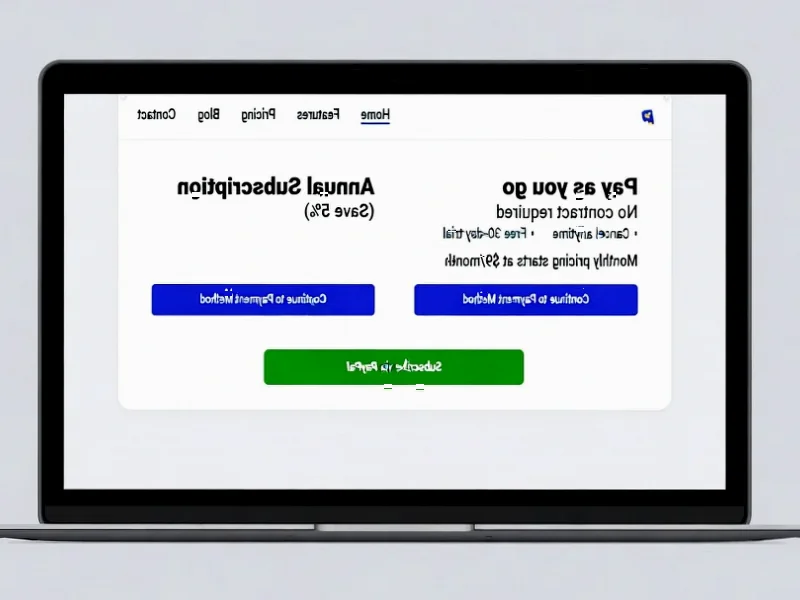According to Fast Company, SoundCloud is launching revamped subscription tiers called Artist and Artist Pro that represent a fundamental shift in streaming economics. The platform, which hosts 100 million licensed tracks alongside 300 million creator-uploaded tracks, will now pass 100% of earnings from streams on other services directly to artists, eliminating the previous 20% cut SoundCloud took from these royalties. This approach aims to help musicians, DJs, and podcasters use streaming as a “foot in the door” to drive album sales and merchandise revenue. The move positions SoundCloud as a distribution hub that prioritizes creator earnings over platform revenue extraction from cross-service streaming.
The Platform Power Shift
SoundCloud’s decision to eliminate its 20% cut on distributed streaming revenue represents more than just a pricing strategy—it’s a fundamental rethinking of platform value propositions in an increasingly saturated creator economy. For years, streaming services have operated on a simple premise: provide distribution and discovery tools while taking a percentage of revenue. SoundCloud is betting that in 2024, the real value isn’t in skimming royalties but in becoming the central hub for an artist’s entire digital presence. This mirrors trends we’re seeing across the creator economy where platforms like Patreon and Substack have demonstrated that creators will flock to services that prioritize their financial sustainability.
The Distribution Play
What makes this particularly strategic is SoundCloud’s positioning as a distribution gateway rather than just another streaming destination. By enabling artists to distribute from SoundCloud to other platforms while keeping 100% of those external earnings, they’re essentially making their platform the “bank” for an artist’s streaming career. This creates powerful lock-in effects that go beyond simple user loyalty. Artists who route their distribution through SoundCloud become embedded in their ecosystem, making it significantly harder to switch platforms even if better discovery algorithms emerge elsewhere. It’s a clever inversion of the traditional platform strategy—instead of trying to keep users within their walled garden, they’re making themselves the indispensable pipeline to every garden.
Industry Ripple Effects
The pressure this puts on competitors like Spotify, Apple Music, and Amazon Music cannot be overstated. While these platforms have made gestures toward artist-friendly policies—Spotify’s recent announcement about royalty model changes being a prime example—none have gone as far as eliminating their cut entirely. SoundCloud’s move essentially dares larger platforms to explain why they need to take 30% when a competitor is proving they can operate while passing through 100%. We’re likely to see a wave of “artist-friendly” announcements from major platforms in the coming months, though whether they’ll match SoundCloud’s radical approach remains doubtful given their shareholder obligations and massive infrastructure costs.
The Sustainability Question
The billion-dollar question is whether this model can actually sustain SoundCloud’s business long-term. The company has struggled with profitability for years, and eliminating revenue streams during a period of economic uncertainty seems counterintuitive. However, this might be a classic “lose the battle to win the war” scenario. SoundCloud appears to be betting that subscription revenue from Artist and Artist Pro tiers, combined with increased platform engagement from creators who now see SoundCloud as their primary business partner, will more than offset the lost distribution revenue. If they can become the default starting point for emerging artists—the “first platform” where musicians launch their careers—they create a pipeline that pays dividends for years through upgraded subscriptions and increased platform loyalty.
Future Implications
Looking 12-24 months out, I expect we’ll see two major developments. First, a bifurcation of the streaming market between “discovery platforms” (like TikTok and YouTube) and “career platforms” (like SoundCloud’s new model) where artists use different services for different purposes. Second, we’re likely to see increased pressure on the major labels to renegotiate their own royalty arrangements with streaming services. If independent artists can keep 100% of their distributed streaming revenue through SoundCloud, why should signed artists accept traditional label deals that might give them only 15-20%? This could accelerate the trend toward artist services deals where labels provide marketing and promotion while artists retain more ownership and revenue.
The Broader Trend
SoundCloud’s move reflects a larger shift across digital platforms where the value is shifting from content aggregation to creator empowerment. We’ve seen similar transitions in video (YouTube’s Partner Program), writing (Medium’s Member program), and education (Skillshare’s teacher revenue sharing). The platforms that thrive in the next decade will be those that recognize creators aren’t just content suppliers—they’re business partners whose success directly drives platform success. SoundCloud’s gamble is that by putting artists first financially, they’ll win the loyalty that translates to sustainable growth even if it means sacrificing short-term revenue. It’s a bold bet that could either reset industry standards or serve as a cautionary tale about the economics of creator-first platforms.




